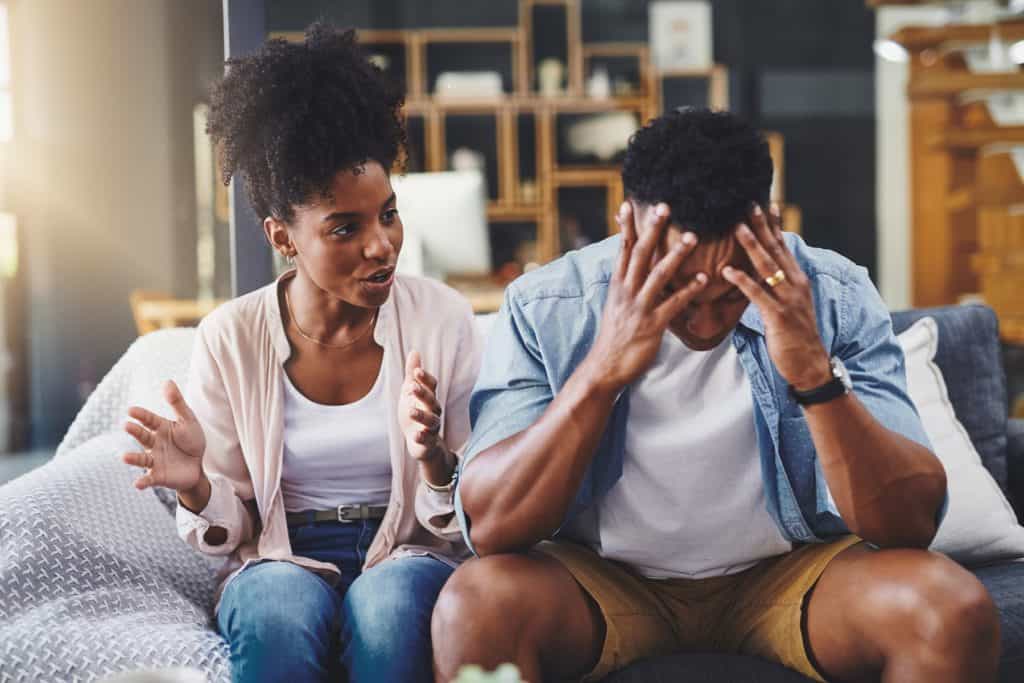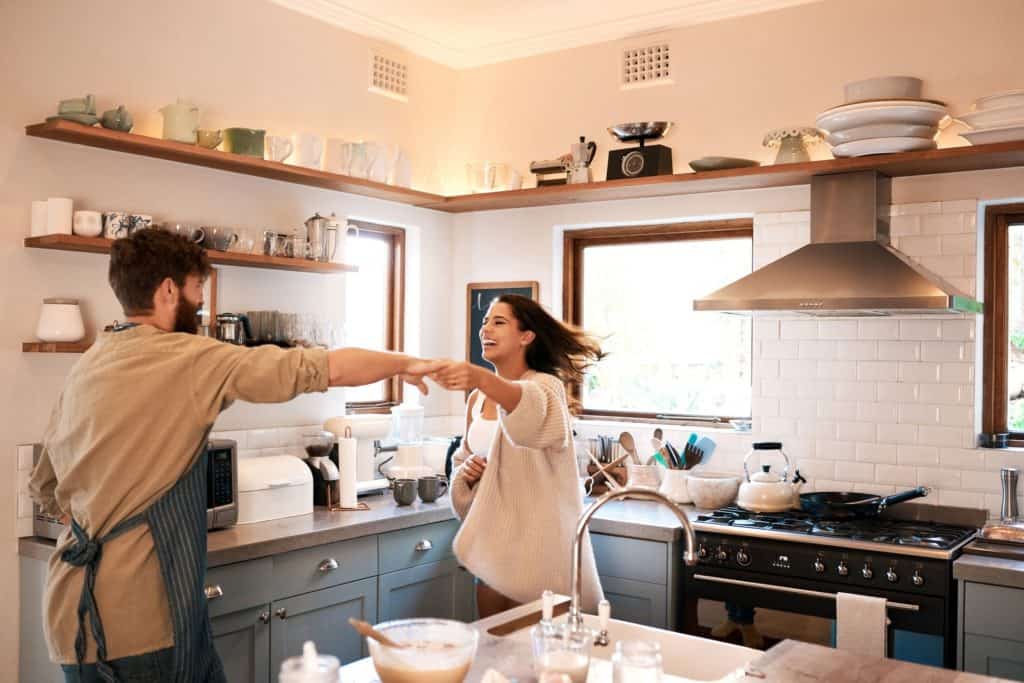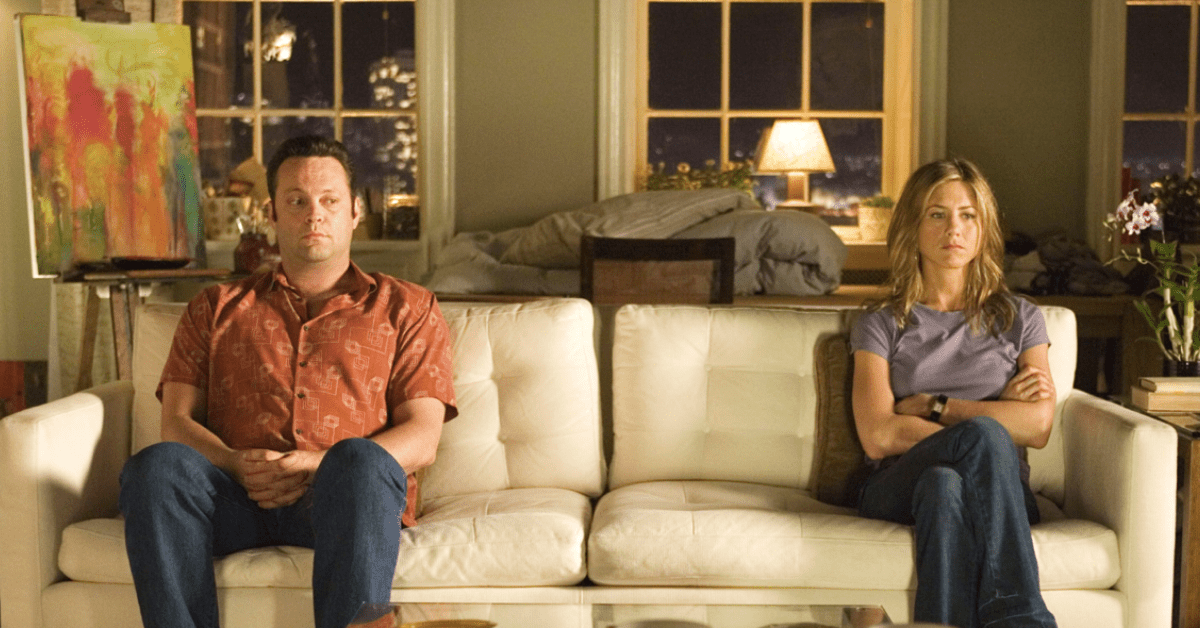Relationships have always been partly about navigating obstacles, whether that’s dealing with the surprising amount of stress associated with going on holiday with a partner, or bigger issues like bereavement, illness and infidelity. However, while relationship problems have historically felt pretty isolating, we’re now in the unusual situation of millions of couples around the world collectively dealing with the same issues.
According to a recent survey published by the charity Relate, of the 2,058 adults asked, 8% of people in relationships have decided they need to end things with a partner as a result of lockdown. At the other end of the spectrum, lockdown also revealed to 10% of those in relationships that they actually wanted to propose. Evidently, being in close quarters with a partner for an extended period of time can either help or hurt a relationship, and it all comes down to the strategies you use to cope.
Maintain some separate hobbies

Even outside of a lockdown situation, a lot of relationship advice boils down to maintaining your own separate identity. While prioritising time with a partner is crucial to the health of your relationship, it’s also important to avoid becoming completely absorbed in the halcyon glow of couple’s time.
Normally, this means making sure not to neglect your friends, and keeping up with any classes or commitments you may have signed up for in the days before you started dating someone. However, in a situation where seeing friends in person is prohibited and many recreational classes have been cancelled or postponed, a little creativity is needed to make sure that days don’t go by where the only people you have spoken to are your partner and the grocery delivery person.
Continuing to making progress on interests you already have is key to maintaining your own sense of self, whether that means reading for an hour before bed every night, or working your way through an adult colouring book. Reaffirming your commitment to activities you know you enjoy is a great way to sprinkle sure-fire moments of safety and comfort throughout the week, as well as conveniently breaking up the day to stop them blurring together.

If you can, then take the normal hang-outs you would make time for with friends and family and make them virtual. Agree to watch a film or TV show in sync instead of going to the cinema, and take your cocktail hour or coffee shop chatter to zoom, complete with the appropriate beverages. It may not seem like an entirely satisfying replacement for quality time with the people that you love, but these new quasi-social settings still give you an opportunity to talk about something outside of your or your partner’s days, and to vent unchecked about the stress you may be feeling if you need to.
No matter if you’re finding new ways to communicate with friends, rediscovering old hobbies or exploring new ones, the most important thing is to make sure your partner knows that the time spent on these activities is non-negotiable. Don’t be afraid to assert the importance of time spent alone on your hobbies, and encourage your partner to do the same.
Communication is key

Communication is the golden word when it comes to any kind of relationship. Even if there are no huge outside events that require extra discussions, being aware of how your partner is feeling, and being confident in your ability to share your own emotions, is the bedrock of any healthy relationship.
While in lockdown, it may feel like you are talking to your partner constantly, simply because there is no one else to talk to. With that said, there’s a huge difference between talking about the weather or what you’re going to have for dinner that evening, and actually sharing your feelings honestly with a partner.

Several challenges can emerge from the conditions of lockdown, such as tensions between partners when one wants to be more or less cautious than the other, a change in the sex drive of one or both partners due to stress or familiarity, or just general anxiety about the current situation. You might find yourself needing to draw on empathy more often to understand your partner’s feelings, especially since different people can often have wildly different responses to the same stresses.
Many couples have opted for a once a week check-in, kind of like a flatmate meeting, to discuss anything your partner is doing that is increasing stress in the house, or any accommodations and support you feel like you might need. If you opt for this approach, be sure to schedule meetings for a time where both of you are likely to be fed, well-rested and comfortable, and be sure to use “I” statements rather than “you” statements when discussing any difficulties you might be facing.
Create a de-escalation toolkit for arguments

Even with the best possible communication system in place, the unfortunate truth is that fights can still happen for any couple. Despite what many people think, arguments do not necessarily mean the death knell of a relationship, and just because you and your partner find yourself arguing more often, it does not necessarily mean the relationship is unhealthy or toxic beyond repair.
With that said, many of the usual strategies we use to cope with arguments are unavailable when both halves of a couple need to stay within the same four walls. It’s not advisable to visit a friend for a long chat and a glass of wine, or to blow off steam at the gym, and even going for a long walk to calm down and think things through may not be possible in your particular area. That’s why it could be a good idea to create a toolkit to deal with arguments in advance.

Much of the age-old advice still applies here; going to bed angry is, if anything, a worse idea when you have to spend all of the next day together in the same house or apartment. It is also far more tempting to lapse into the kind of passive aggression you thought was resigned to your roommate days, leaving post-it notes on the fridge or communicating frostily over text messages instead of addressing any problems head-on.
Instead of bad tactics that simply stoke the fires of resentment, why not try agreeing upon a unique word to deploy when you feel an argument coming on. Once the word is used, both partners agree to go away for a set period of time, and come back to discuss the issue when both feel ready for it. During this stressful time, it is best to make sure you are not hungry, over-tired or just in need of a hot bath, to determine if you really do have an issue to discuss, or if you were simply overwhelmed and overstimulated in the moment.
Don’t skip date night

It’s a commonly accepted adage that the sparks that fly at the beginning of a relationship soon dull down into a steady, comfortable flame. This metaphor might highlight the fact that it is impossible to keep the breathless whirlwind beginnings of a relationship going forever, but it also helpfully reminds us that the stability and reassurance of a long-term relationship can be its own reward.
However, there is a difference between being comfortable with a partner and taking them for granted. We’ve all heard stories of relationships ending because one partner simply stopped putting in the effort, or because one person inevitably felt neglected and moved on to seek greener pastures. Spending all your time in the same room as your partner is not the same as spending quality time with them, and just because restaurants, cinemas and bars are closed right now doesn’t mean you should completely abandon the idea of date night.

Making an evening seem special during lockdown definitely requires some creativity to pull off, but it definitely isn’t impossible, and it can be accomplished in any living situation and on any budget. Think about the kinds of activities you know your partner is missing, and see if you can recreate aspects of them. Look into the past for your most memorable dates, romantic moments or anniversaries, and surprise your partner by inviting them to relive them in their own living room!
Even if all you can do is put on your best date clothes to waltz around to songs on the radio and drink homemade cocktails, your partner will be touched by your decision to go to special effort on their behalf. Not only that, but you will have made memories together that last far longer than lockdown will.
Don’t expect a honeymoon period

Of all the problems couples commonly face, admitting to problems in the bedroom might be the most challenging. Even outside of periods of great upheaval, it’s not uncommon for couples to worry about how their sex life stacks up, and to have concerns about having too little sex, or sex that is not fulfilling or exciting enough.
To make things worse, many couples attribute any problems with their love life to busyness – assuming that the stress of work or the energy expended on their commute is the reason they find themselves less ‘in the mood’ at the end of the day. Unfortunately, this has led some couples to assume that lockdown will do wonders for their love life, since they suddenly have way more time to spend together.

This expectation creates a lot of unnecessary pressure, especially since it does not paint an accurate picture. Time spent in the same house doesn’t automatically equate to quality time spent together, and it can be hard to foster an environment of intimacy in a time of such upheaval. After all, there’s a reason that the chemical prolactin, created by the brain when we are experiencing stress, is also known as ‘the celibacy hormone’.
It is important to accept that any fluctuations in you or your partner’s sex drive is an entirely normal response to what is going on. Nothing is wrong if you find yourself less in the mood than usual, and communicating this to your partner can help alleviate some of the stress and expectation. With that said, if you’re aiming to cultivate a more intimate atmosphere, it may be necessary to ban phones from the bedroom in order to prevent doom scrolling before bed, and to set aside a certain amount of time in the evenings to spend only with each other.

